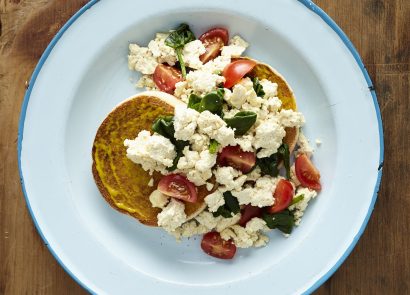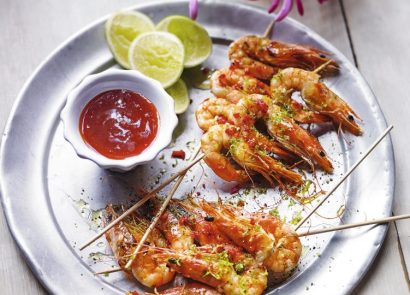Our bodies are amazing. For instance, take the immune system. This intelligent network is strong and complex, ready to protect us from the innumerable number of attacks it sustains each day, whether it’s from viruses, bacteria, parasites, or toxic substances.
However, we need to take care of our immune system to keep it functioning well.
Nutrition provides crucial protection for our bodies when it comes to supporting our immune system and our overall health and wellbeing.
That’s why here, Monica Durigon, nutritional therapist and Simplyhealth partner has shared her expert advice on the science of nutrition, with top tips on the best foods to eat to boost your immune system.
Eat A Rainbow With Each Meal
As a general rule, at least half of your plate should be contain a range of vegetables in a rainbow of beautiful colours. This provides many different micronutrients (vitamins and minerals) and phytochemicals – the chemicals that give plants their colours and are beneficial for our health.
Why do micronutrients and phytochemicals matter?
When our bodies fight an invasion (aka an immune response), they boost the production of chemical molecules. These chemicals have one goal: to kill the invaders. This leads to the formation of free radicals (damaging molecules). If free radicals aren’t controlled, they can damage tissues and even cells. Inflammation increases and, over time, this becomes a chronic disease in our bodies.
How do we fix this?
Our bodies have a built-in fail-safe and create antioxidising molecules to work against the damage. Antioxidants (the name we give to these antioxidising molecules) can interact safely with and neutralize free radicals.
However, for your body to make antioxidants, it’s essential to feed it with a healthy diet. We also get ready-made antioxidants and anti-inflammatory molecules (phytochemicals) directly from the fruit and vegetables we eat.
The shopping list:
It’s important to include the following vitamins and minerals in your diet to boost your immune system:
Zinc
Getting zinc into your body can be done by eating foods such as ginger, lamb chops, beef steak and peanuts to name a few.
Whether you choose to get it through your porridge oats in the morning, eggs at lunch, or chicken, meat, or legumes in the evening, not only is zinc great for the immune system, it also helps with the wound-healing process and supports growth and development in children.
Selenium
Selenium is an antioxidant and is vital for your immune system. Brazil nuts are a brilliant source of selenium. However, it’s always good to mix up the sources as selenium content can vary based on where the plant grew and the conditions it grew in.
Apple cider vinegar, turnips, brown rice and seafood such as scallops, prawns and cod are also an excellent source of selenium.
Most people can get the recommended amount of selenium through their diet, but processed foods may destroy it.
Vitamin C
When you think of vitamin C, oranges and orange juice are usually the first things to spring to mind, but there are a host of other foods you can get the vital vitamin from as well, including red peppers, cauliflower, red cabbage, and broccoli.
As long as you ensure you have a colourful diet, you’ll get some vitamin C.
Vitamin A
Much like vitamin C, vitamin A follows the rainbow trend. Red pepper, sweet potato, and butternut squash all contain levels of vitamin A.
If you’re looking to add some greens, you can opt for kale and spinach. And if it’s fruit you’re after, apricots and nectarines also have levels of vitamin A.
Vitamin E
Almonds, peanuts, and pecans are all great sources of vitamin E, another very important immune system booster.
It isn’t just the nuts you find it in either. Salmon, brown rice, asparagus and carrots all contain vitamin E.
Vitamin D
The good news is you can get most nutrients from those beautiful, bright fruit and veg. The bad news is not vitamin D.
The only ways to get a good level of vitamin D is to either take supplements or get out in the sun.
Vitamin D plays a crucial role in modulating the immune response. For most of us, our levels of vitamin D go down in the winter months, when it is recommended to supplement.
Even in the warmer months, if we don’t get out (or if we’re self-isolating), we might not rebuild our vitamin D levels.
However, you can have your serum level tested regularly to assess the correct supplementation for you.




















